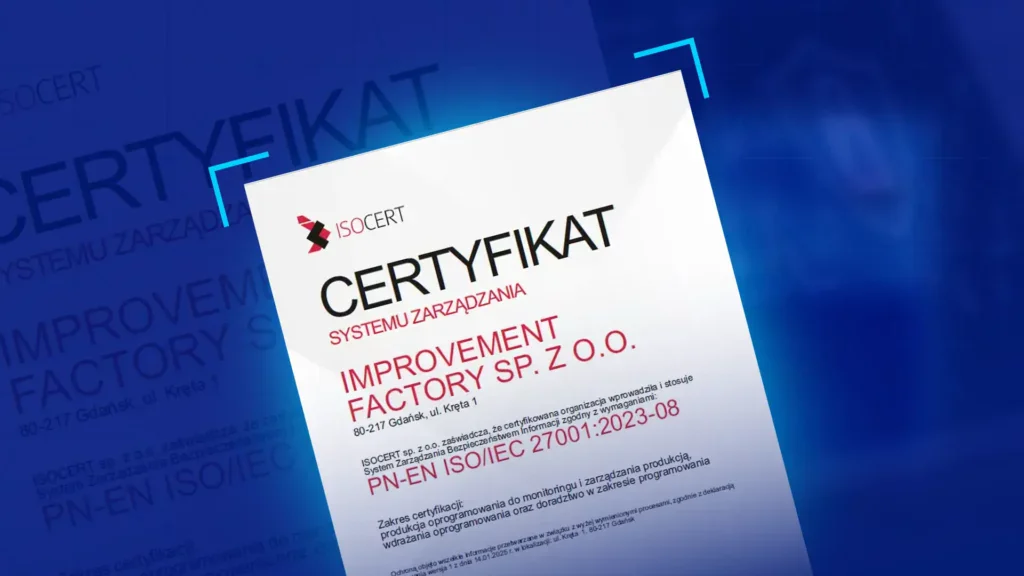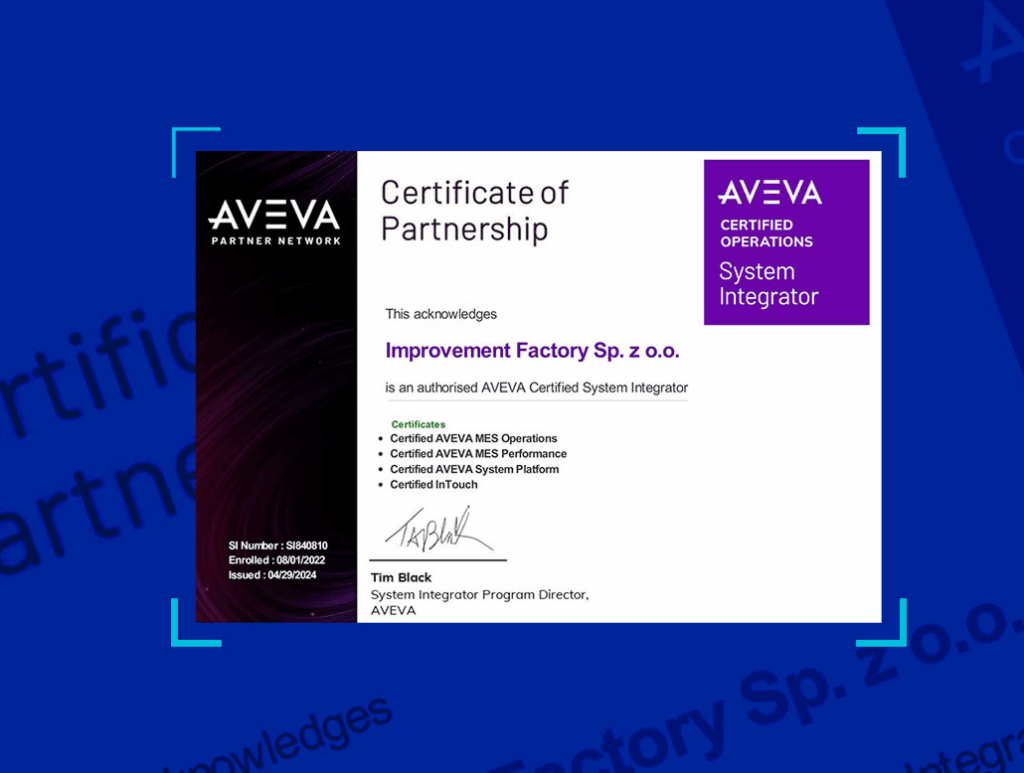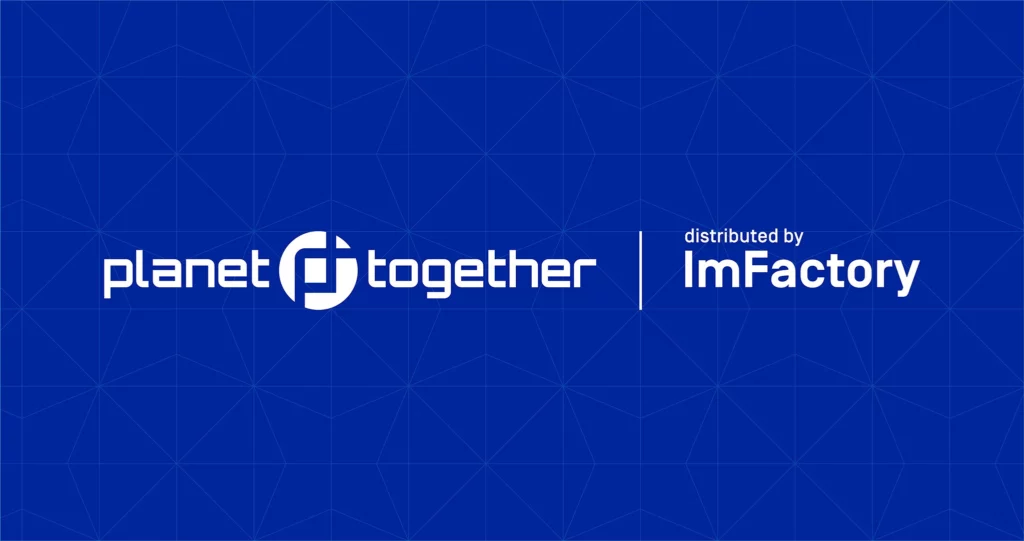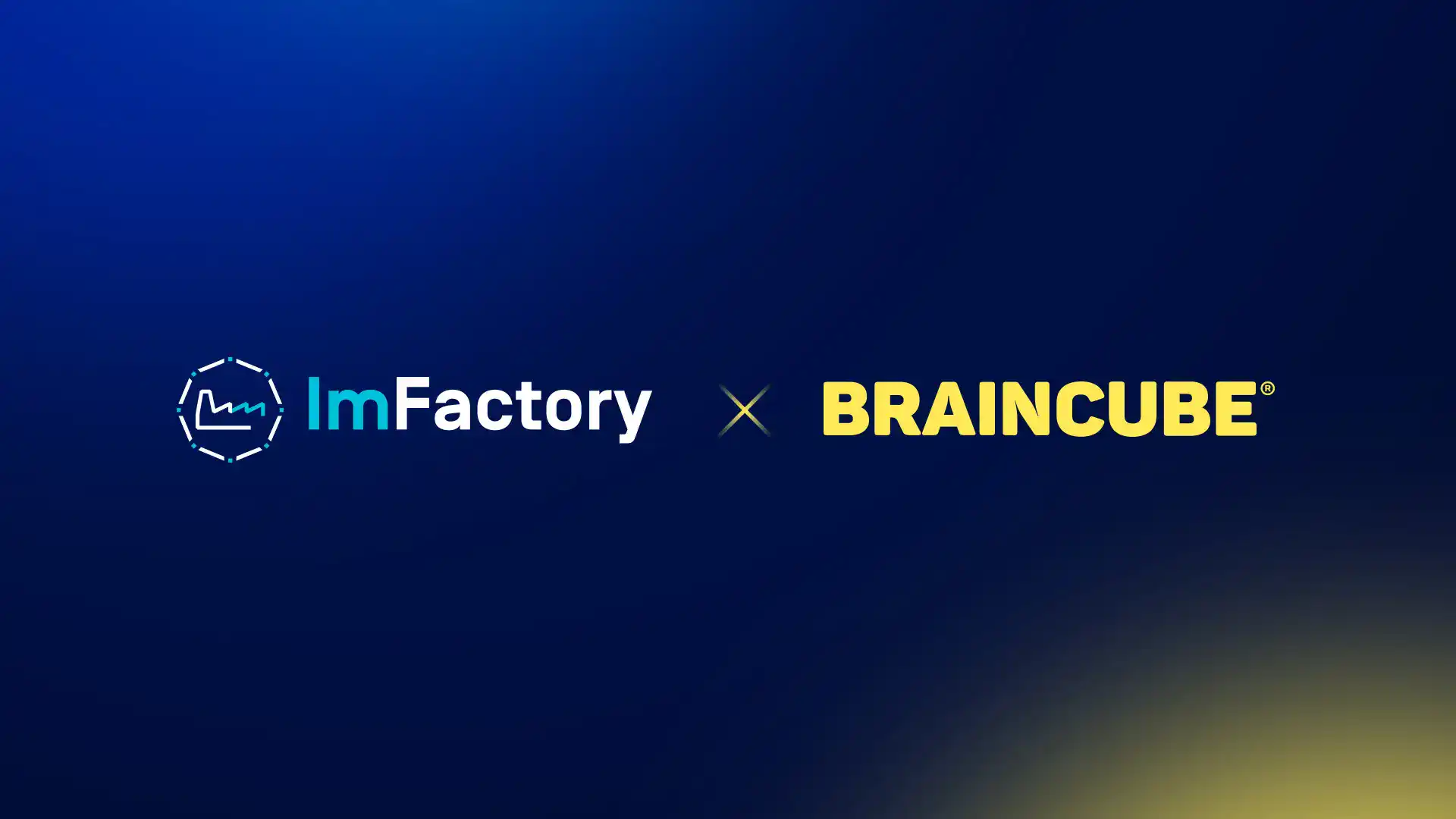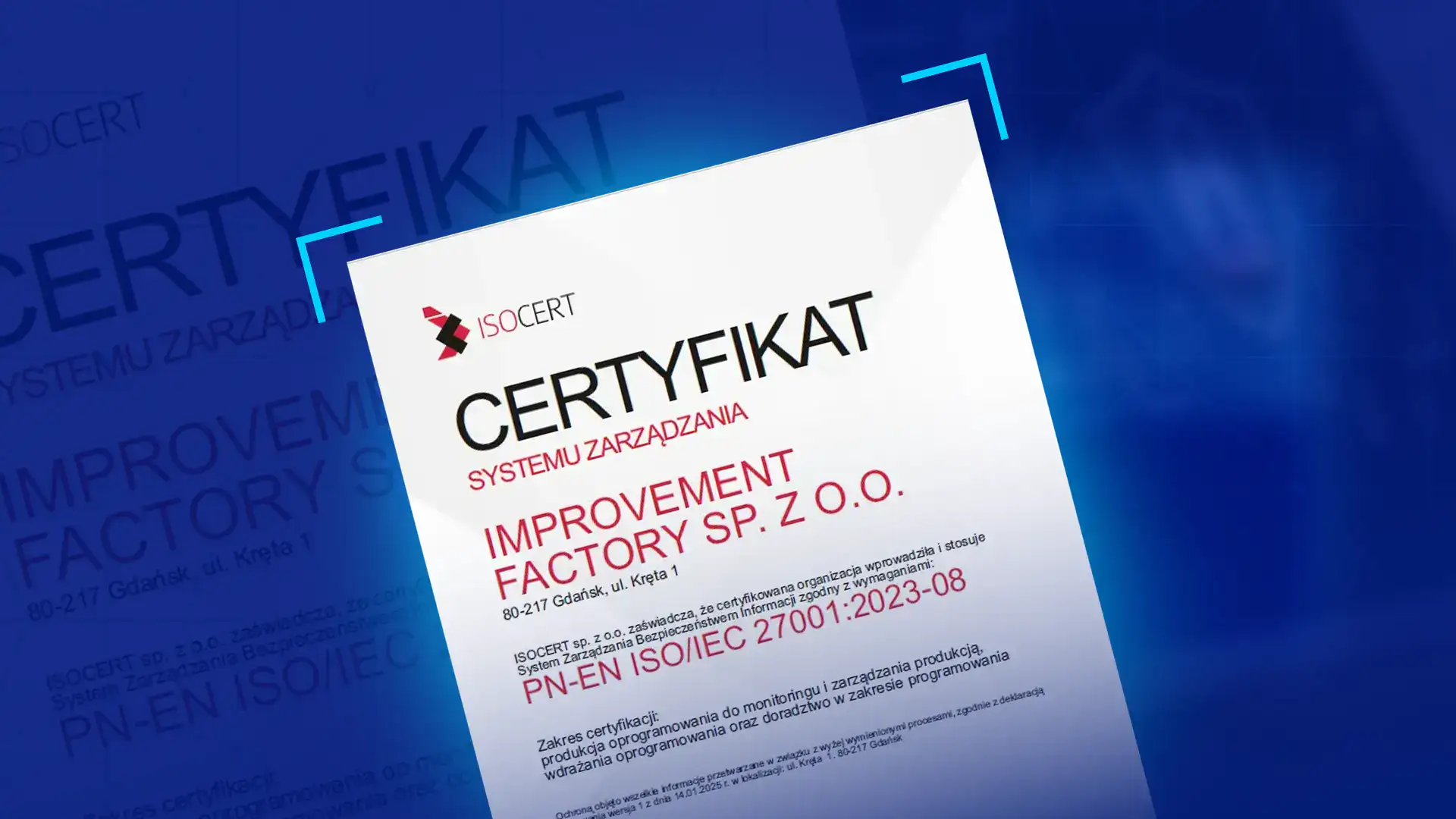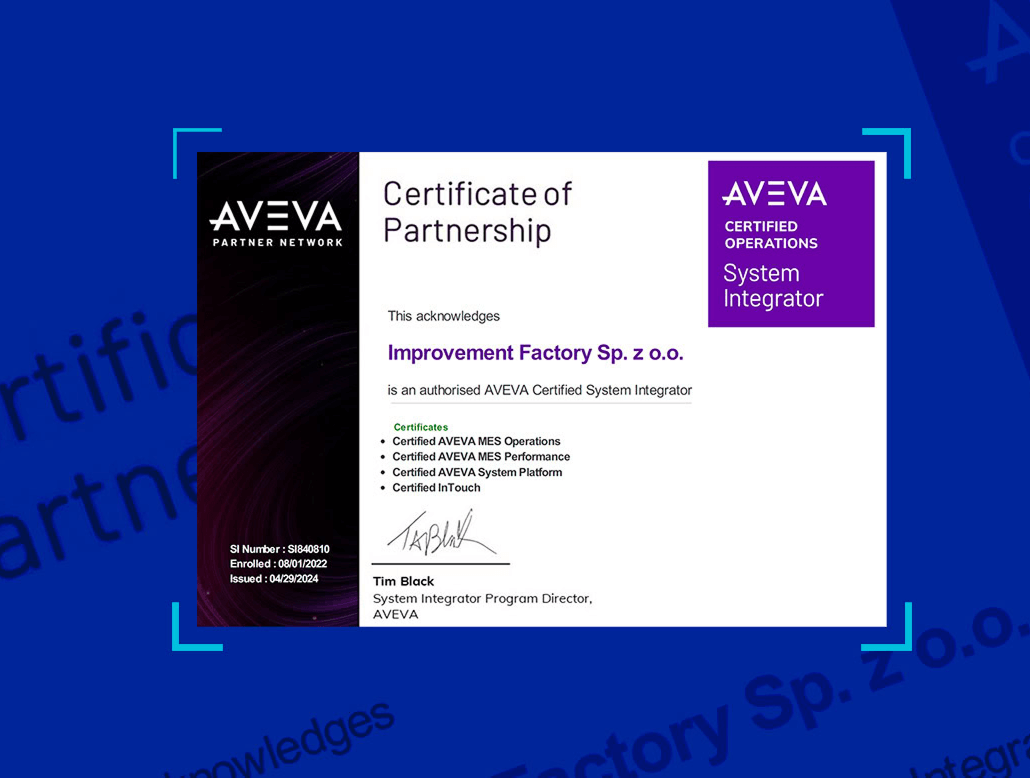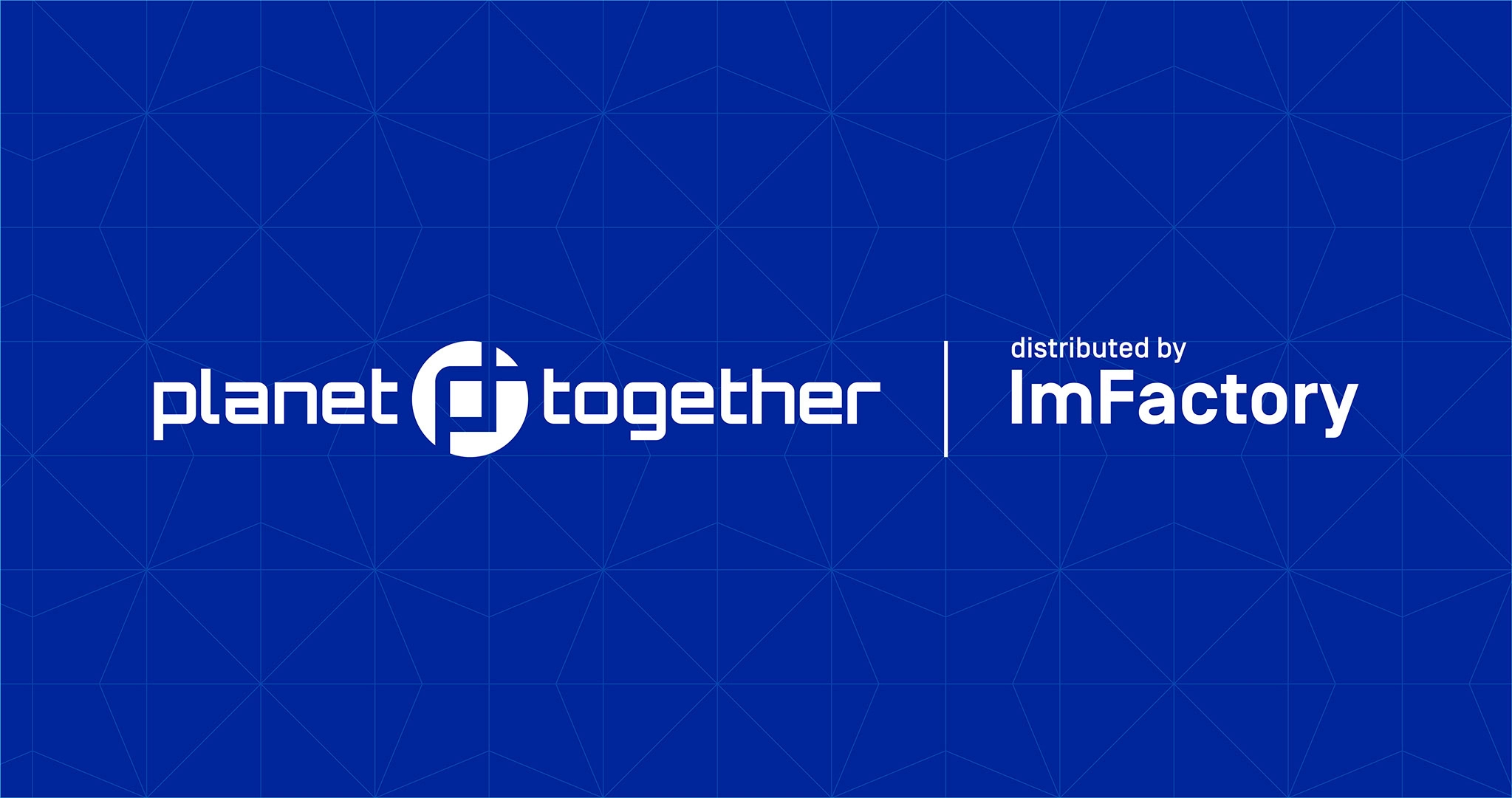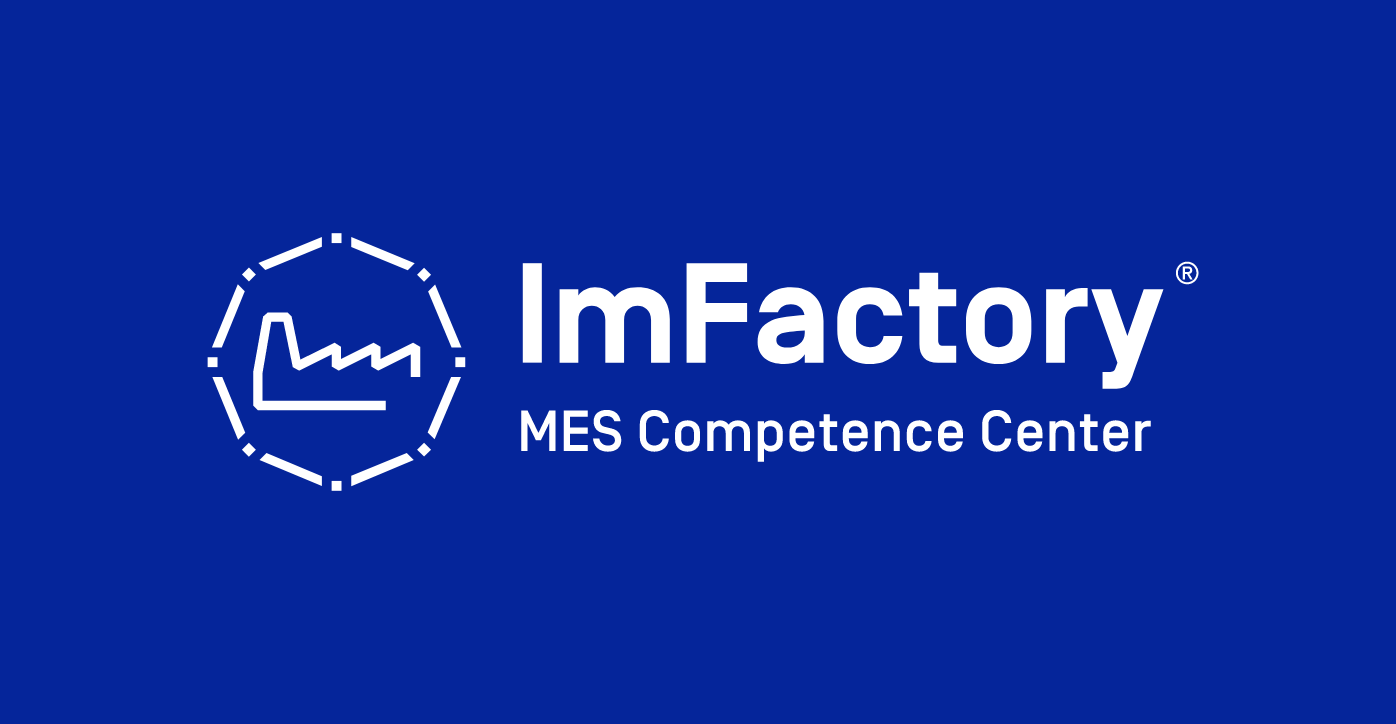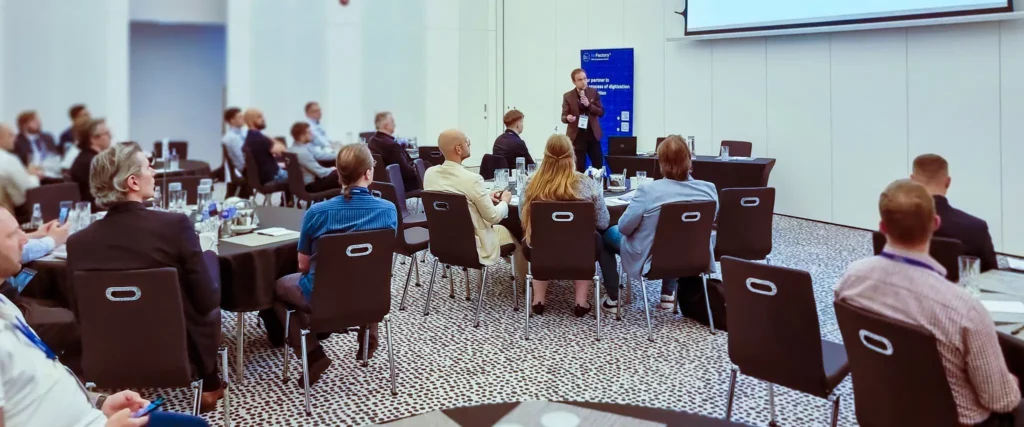
Practically and Genuinely: The First Edition of Digital Factory Day
On June 18, in Warsaw, the first edition of Digital Factory Day took place – a forum for the exchange of experiences among manufacturing companies, organized by ImFactory and ASTOR. The event’s objective was to share knowledge and best practices related to the digitalization of industry and the implementation of cutting-edge information technologies in production.
The event was attended by leaders in digital transformation, representing manufacturing companies from various sectors. The intimate nature of the conference created an open and welcoming space for sharing experiences. One of the participants perfectly summarized the organizers’ key goals in a survey: “Examples, lots of questions, honest discussion about problems without sugarcoating” – in a nutshell, practically and genuinely.
Polish companies are increasingly aware of the benefits of digitization and the digital transformation of industry, including the associated investments in new technologies. Although knowledge in this area is growing year by year, there is still a lack of confidence in planning changes. Often, it is unclear where to start implementing new solutions, what steps to take next, and how to react when things don’t go as planned.
“Our main objective was to connect practitioners implementing digital transformation projects in manufacturing enterprises so they could share knowledge and inspiration. We wanted the format of the meeting to align with the everyday practice of our participants and directly relate to their expectations. We have observed the need for such initiatives for a long time, as many people seek inspiration within their companies, and this conference provides an opportunity to gain new knowledge and share experiences,” stated Grzegorz Purzycki, CEO of ImFactory.
Digital Factory Day focused on the topics related to the implementation and development of IT systems for production support. The organizers invited manufacturing companies with strong market positions in Poland and beyond, operating across different sectors.
Fourteen speakers and practitioners, representing ten different sectors, shared their knowledge and experience. The presentations emphasized practically depicting the lifecycle of IT projects for production, from consulting and planning with the Digital Transformation Roadmap, through implementation, to maintenance and development. Comprehensive case studies from various industries showcased this path from a practical point of view, providing a multifaceted perspective on the process.
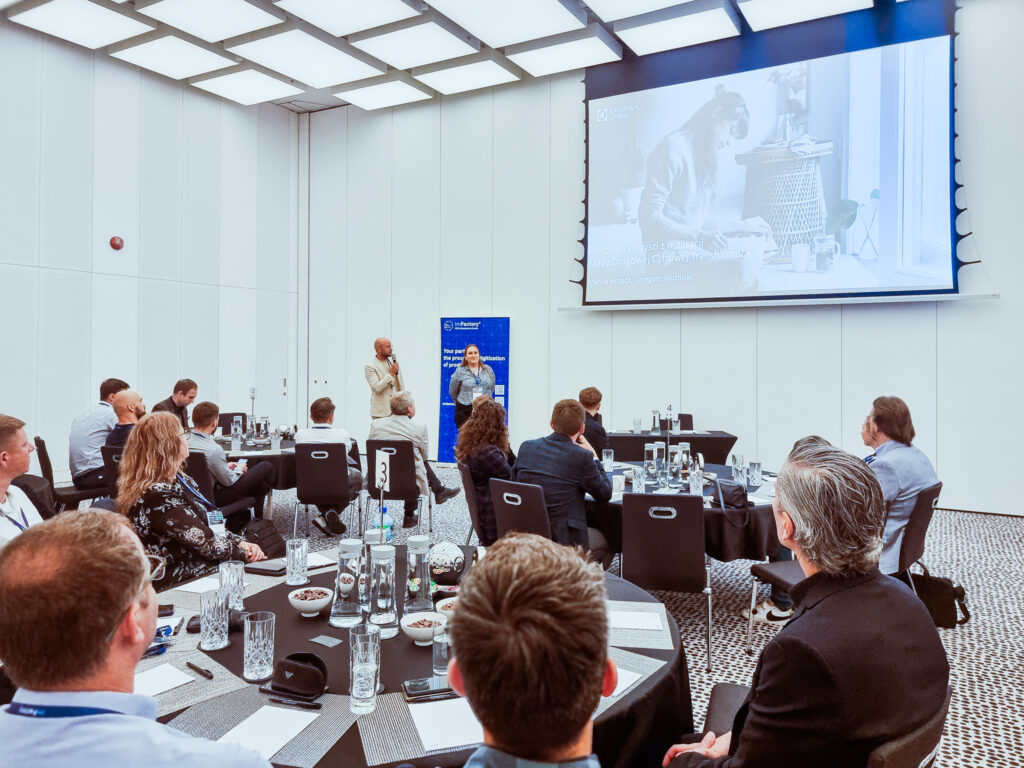
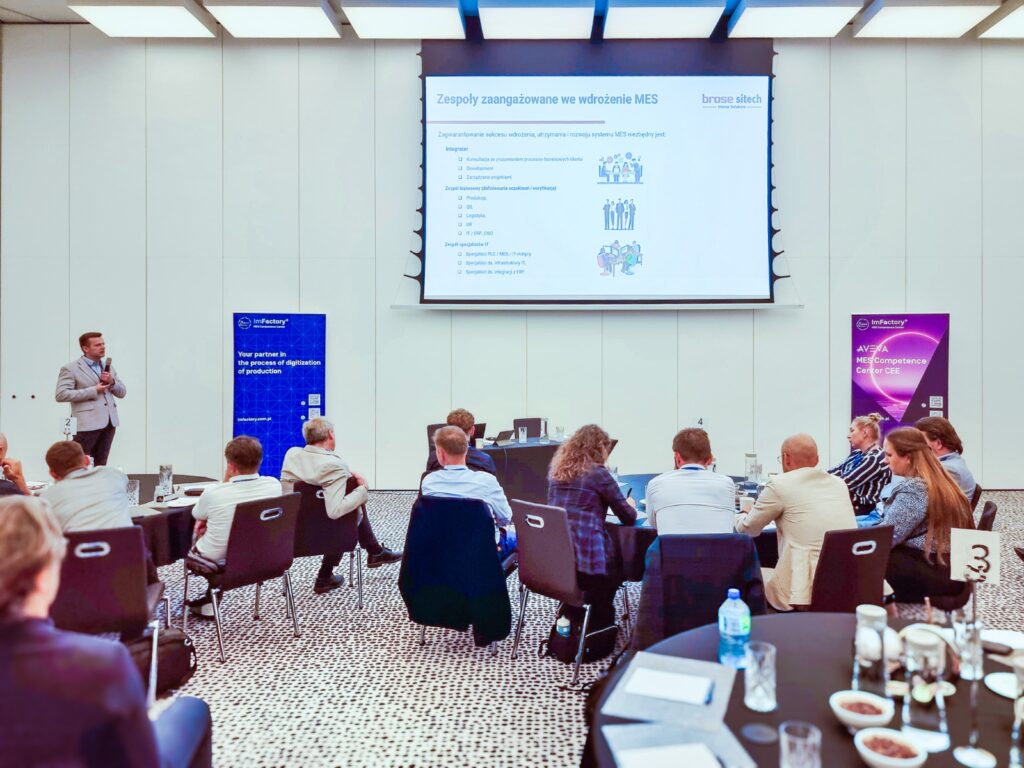
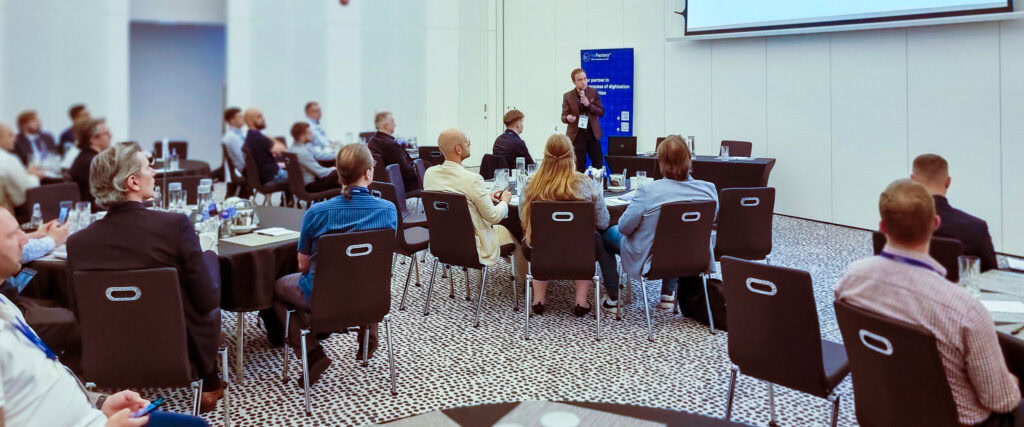

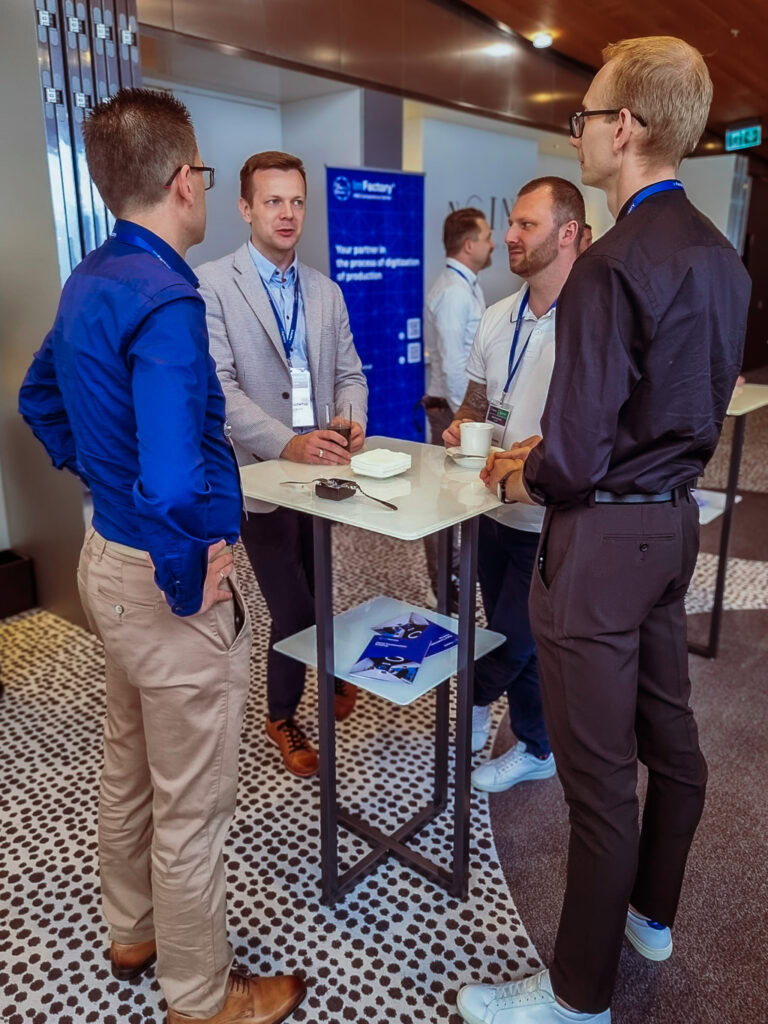
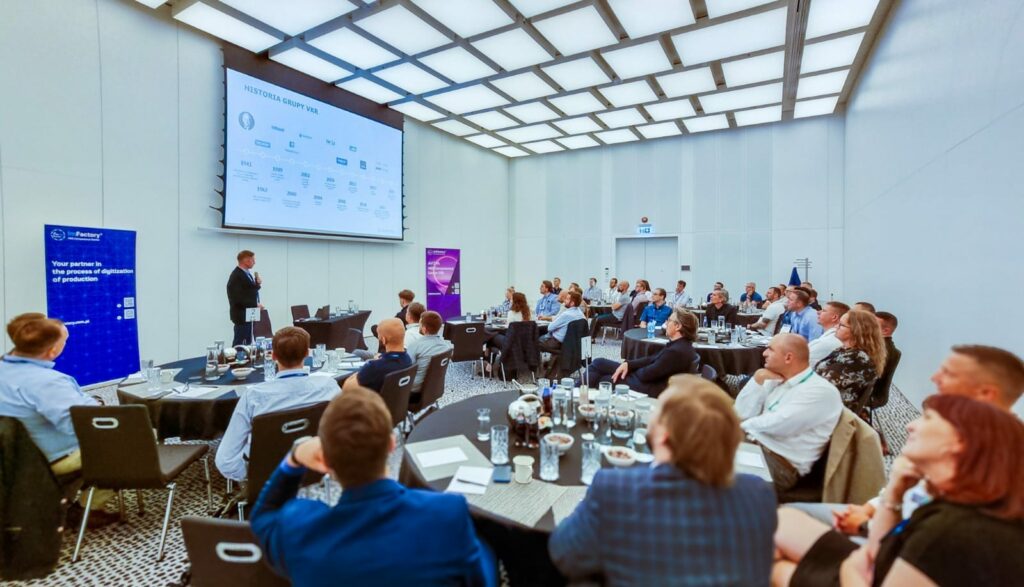
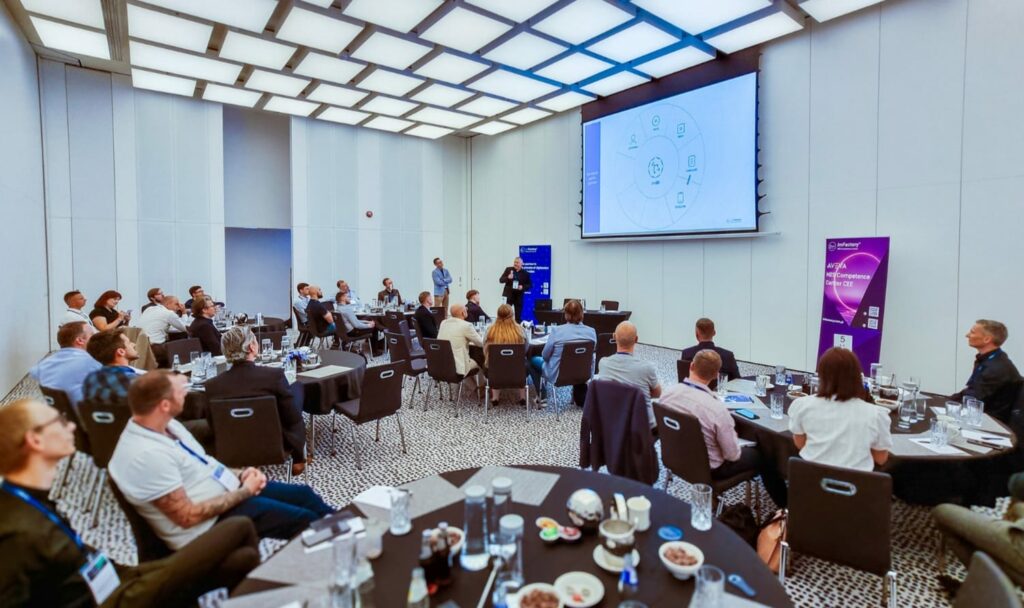
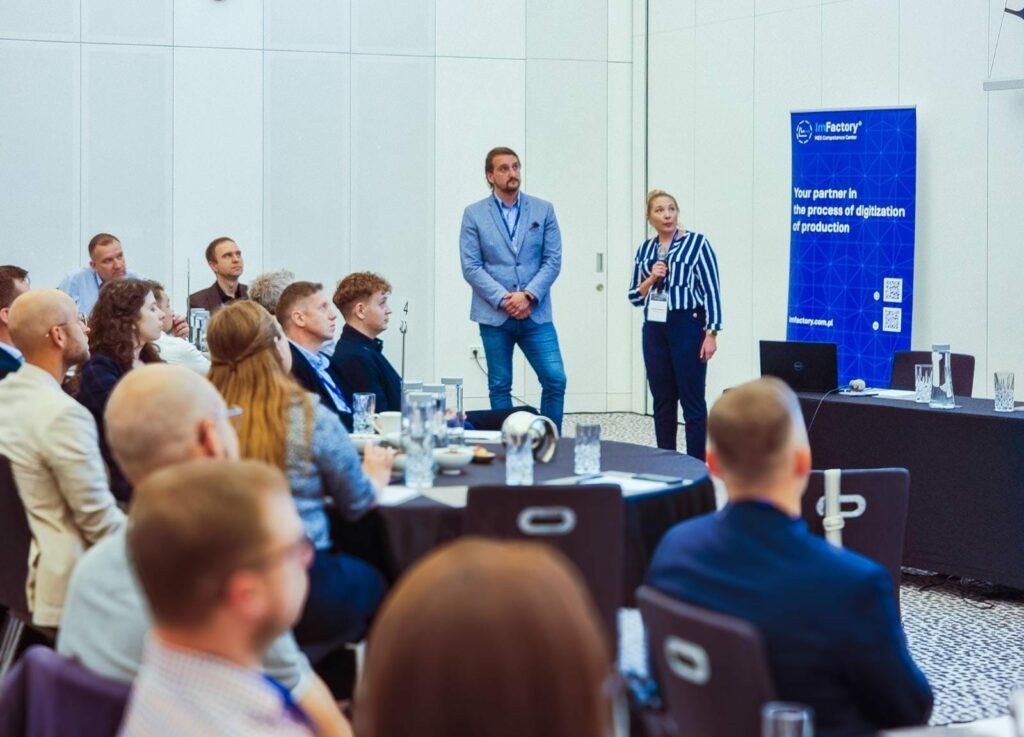
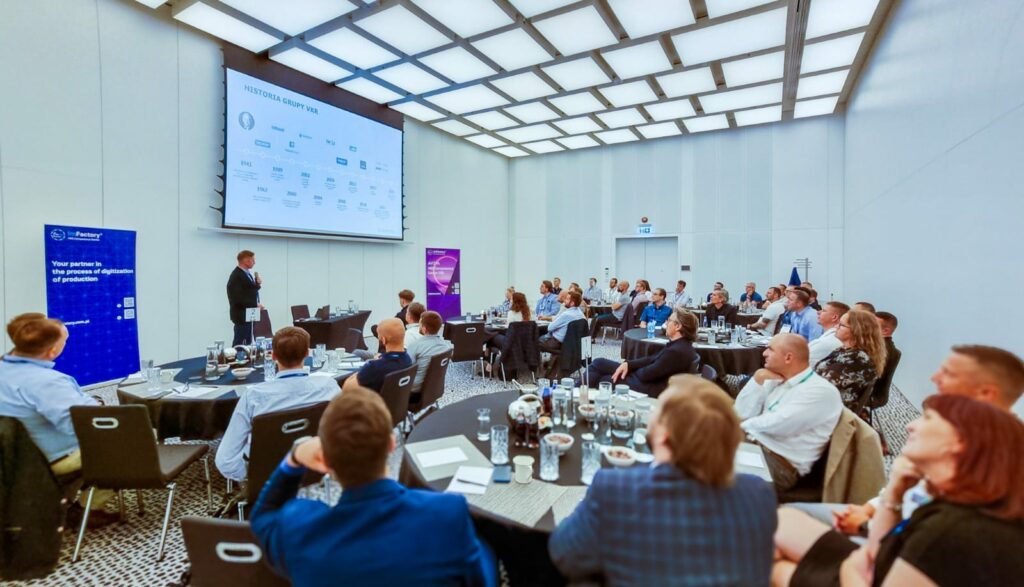
“In our daily interactions, we clearly see that our clients have the need to understand how other companies are managing their digital transformations: what challenges they face and how they overcome them. Real-life examples are always the most demanded and valuable, so we adopted an event format focused on open conversation between practitioners from different manufacturing companies. Additionally, as experts in MES architecture, we have a broader view of the risks that may occur during such projects. While we always caution against these threats, the authentic voices of other manufacturers who have already advanced in this process strengthen this message, allowing new customers to avoid mistakes and achieve better business results in their implementation process,” noted Grzegorz Fijałka, ImFactory Partner and Business Development specialist.
The presentations were divided into four thematic blocks:
- Block 1: Initiating Digital Transformation
- Block 2: MES Implementation, OEE, and Traceability
- Block 3: Effective System Implementation and Maintenance
- Block 4: Additional Inspirations
A particularly engaging topic was overcoming challenges, both business and technical, that occur during the subsequent stages of implementing IT solutions.
“Digital Factory Day was something new. It was an interesting approach to invite representatives of various companies to present their MES implementation projects. Anyone who has successfully implemented such systems has also encountered similar challenges. Numerous questions from the audience indicate that MES systems will continue to be implemented in many more companies. The event was an authentic exchange of knowledge about what was successful and what still needs improvement. Speakers, full of passion about their work, were the common denominator for successful implementation of this complex system,” concluded Arkadiusz Krzemiński, a conference participant.
Much attention was devoted to project planning, or even the entire digitalization program, with the support of the Digital Transformation Roadmap, considering the following aspects:
- First steps: specifications, piloting, Proof of Concept/Value.
- Online data acquisition and processing, visualization (technological, process, energy, and other areas).
- Development towards MES: from process visualization and monitoring, through measuring its efficiency, genealogy detection, and traceability, to a fully integrated, comprehensive manufacturing management system integrated with ERP.
- Various aspects of reporting (tools, capabilities, development).
- Setting goals, effectively managing benefits, and maintaining their effects in the long term through standardization.
- Development of existing systems (vertical development – functional, and horizontal – area-related, e.g., rollout to other departments or facilities).
- Effective maintenance.
“The culture of continuous development in our factory caused a shortage of automatically collected process data. We decided to ask professionals for assistance in formulating a plan to turn our facility into a factory of the future. The process of developing a Digital Transformation Roadmap helped us reserve time to discuss innovation and significantly facilitated project budgeting. It was a pleasure to present our experiences at Digital Factory Day and to be inspired by other presentations,” recalled Maryla Hrobot, a conference participant.
The format of the event, based on an honest exchange of experiences and the opportunity to analyze various solutions, was very positively received.
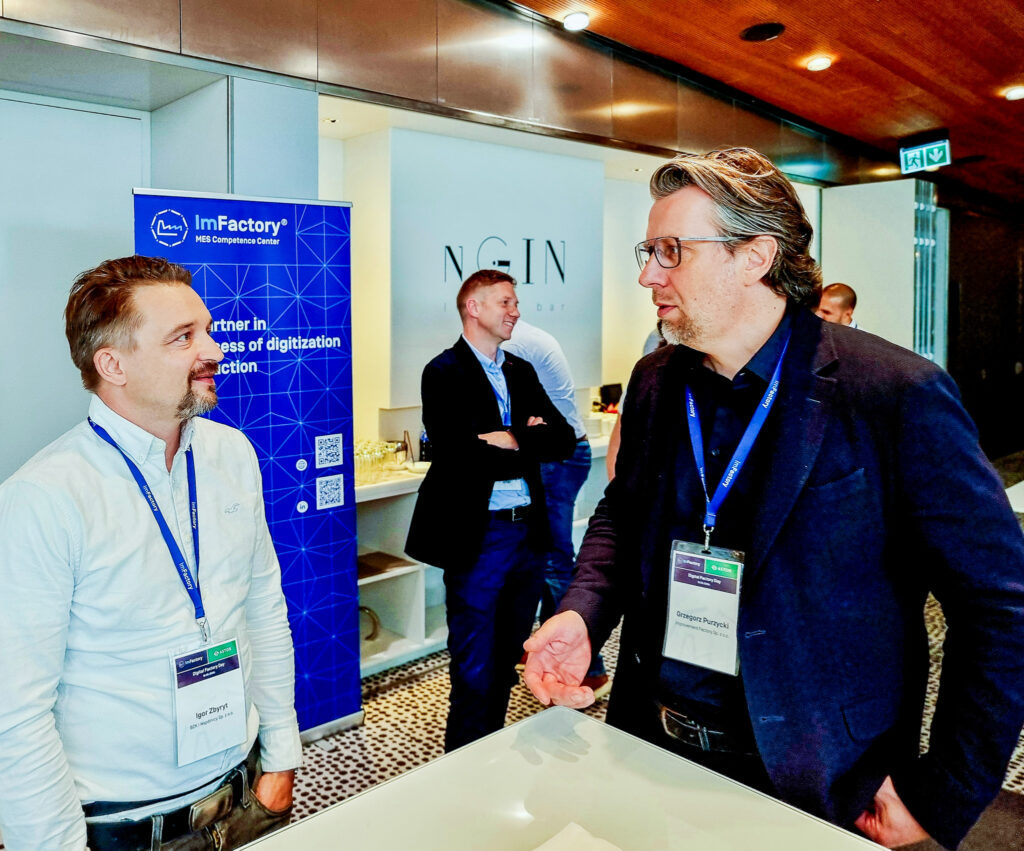
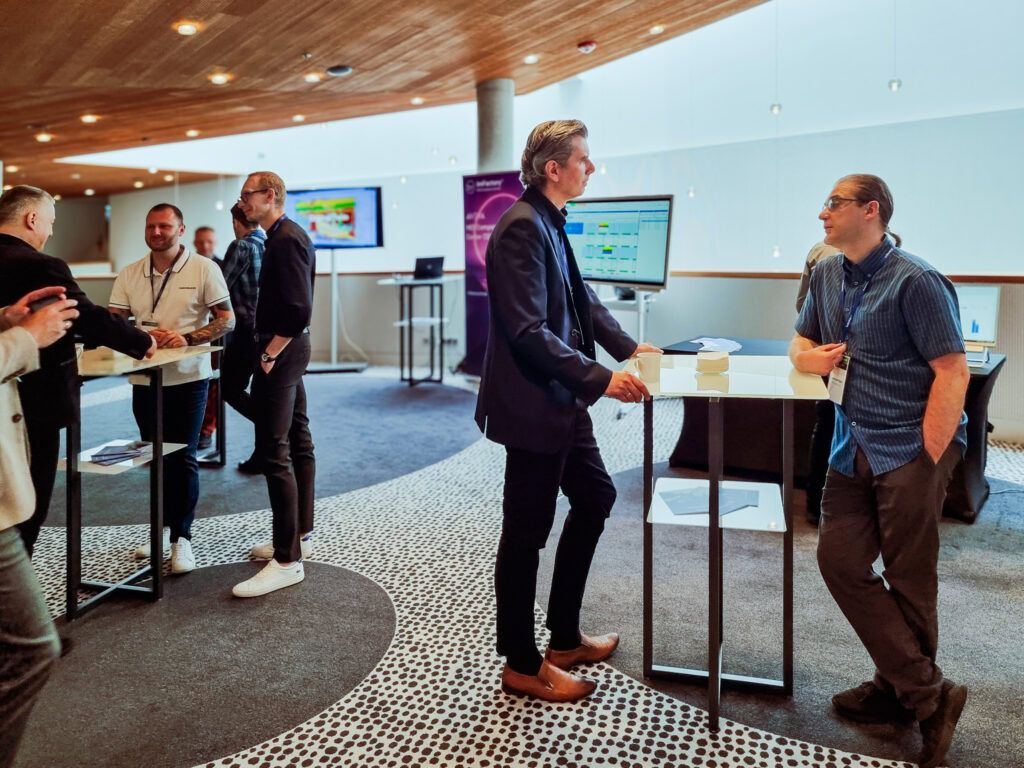
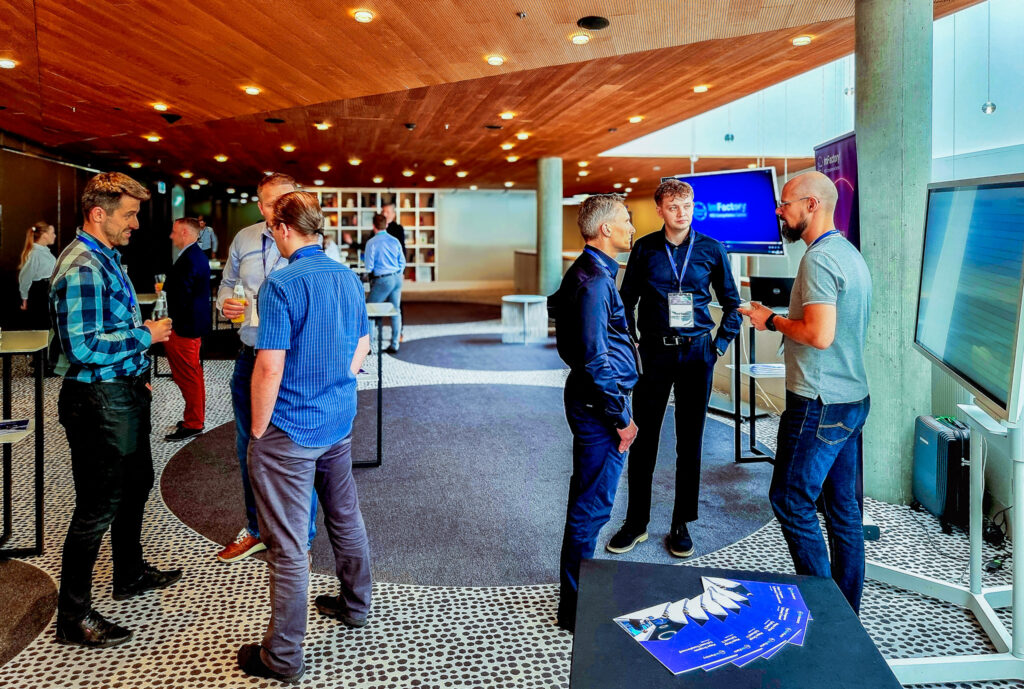
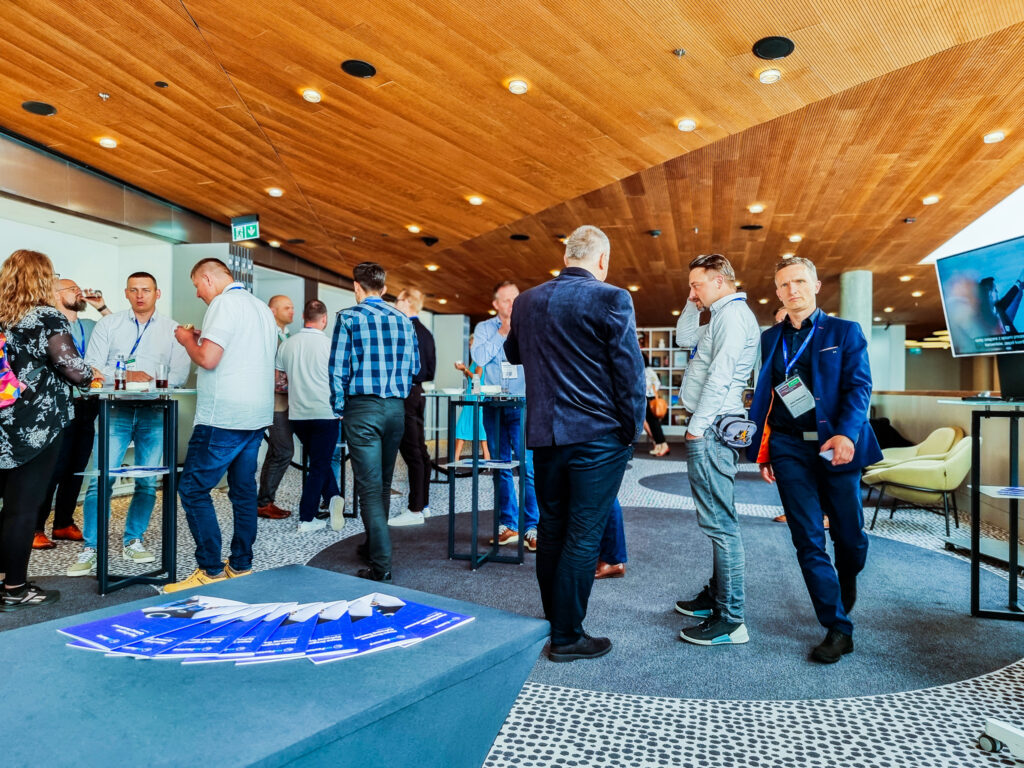
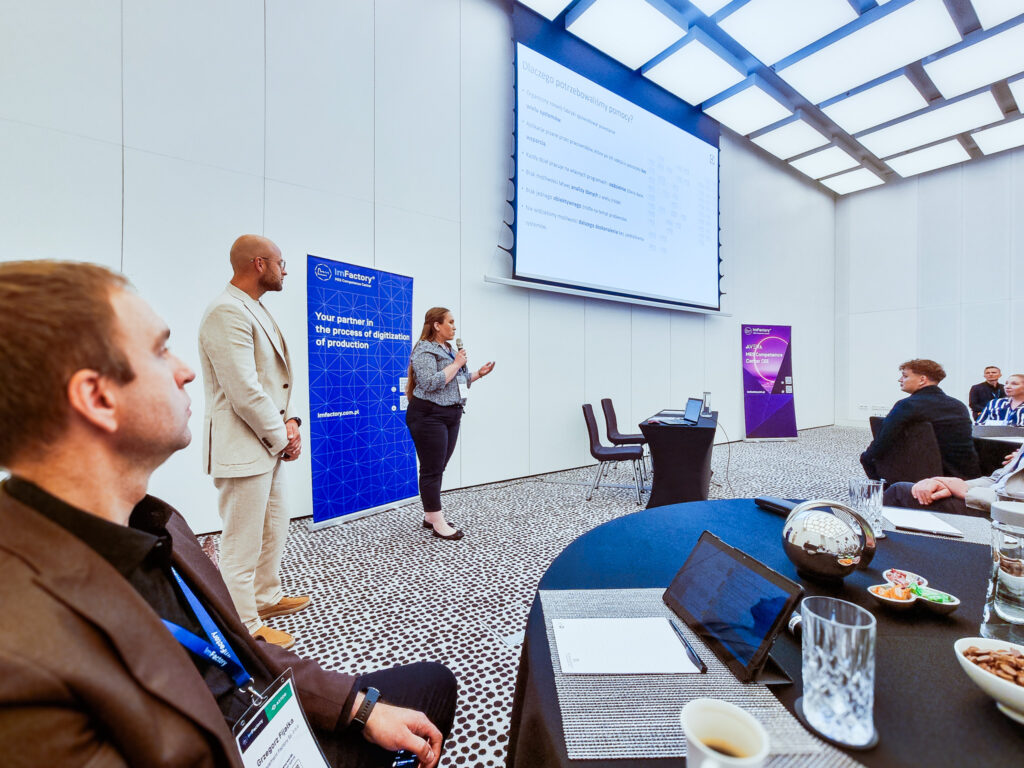
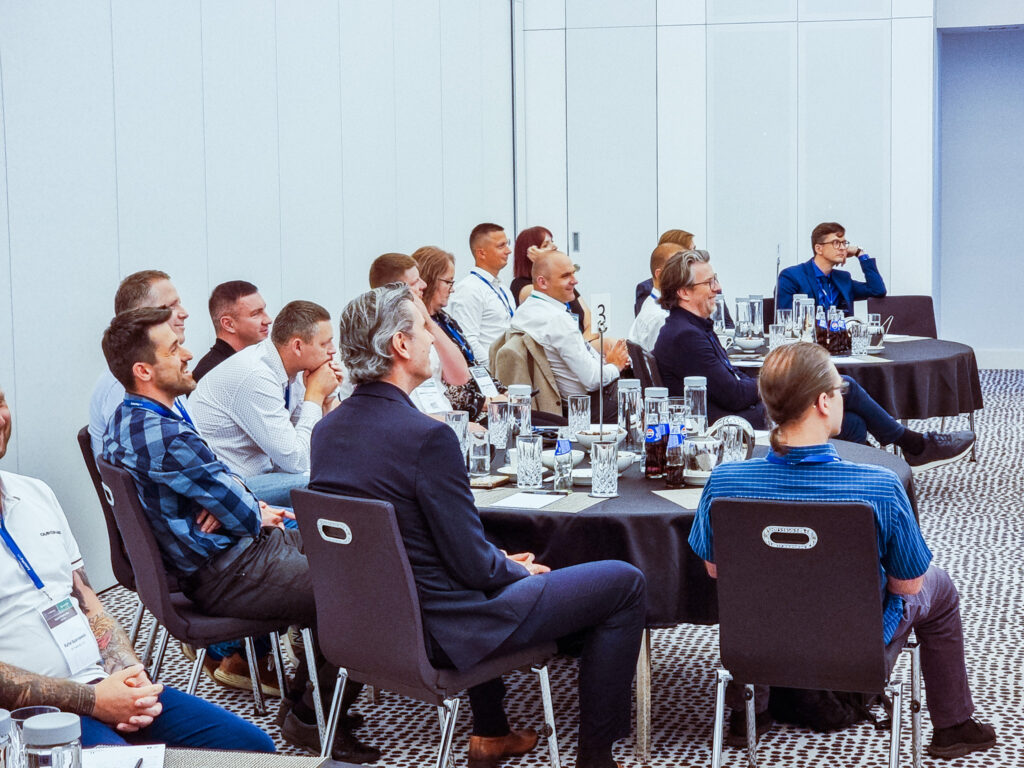
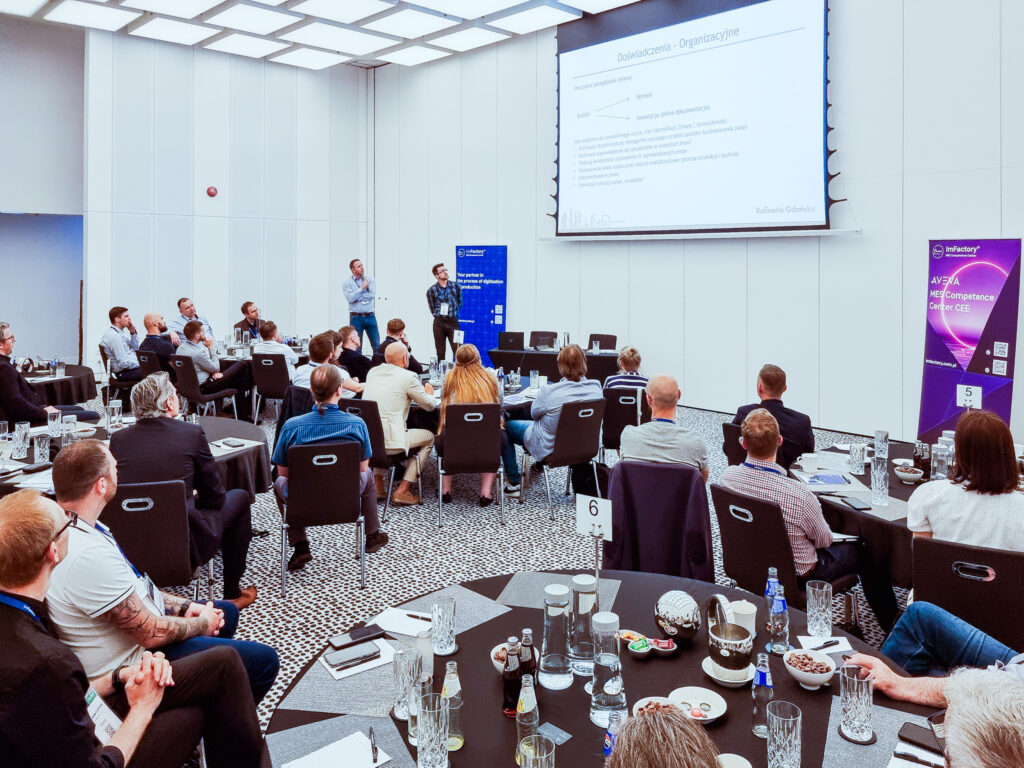
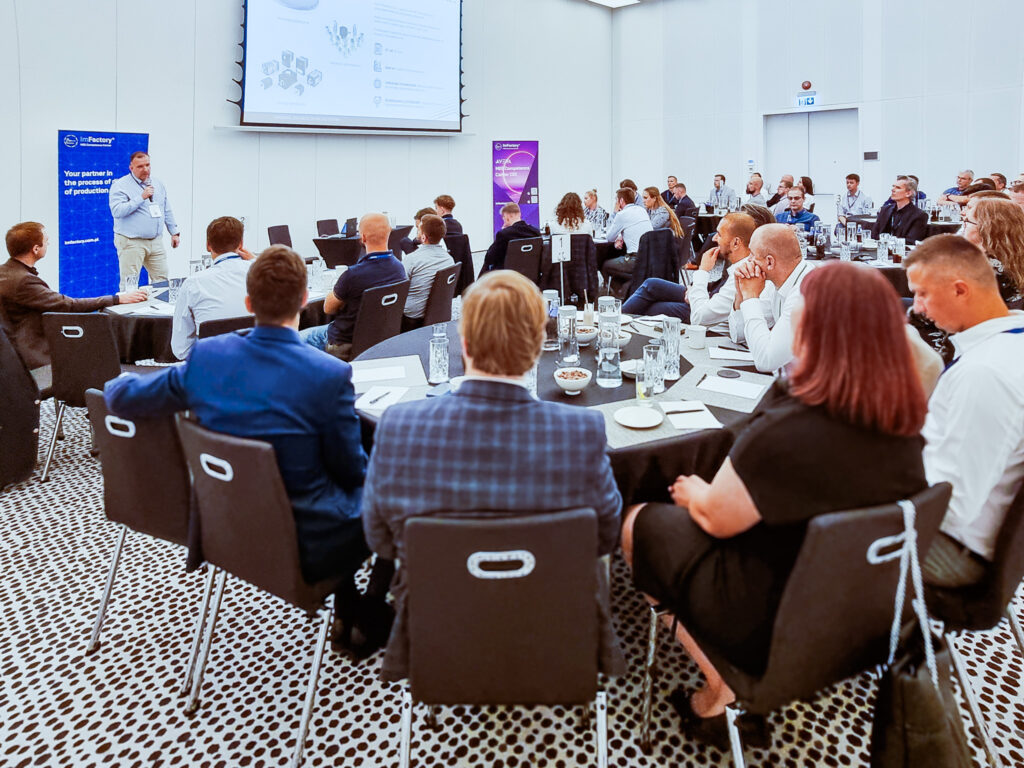
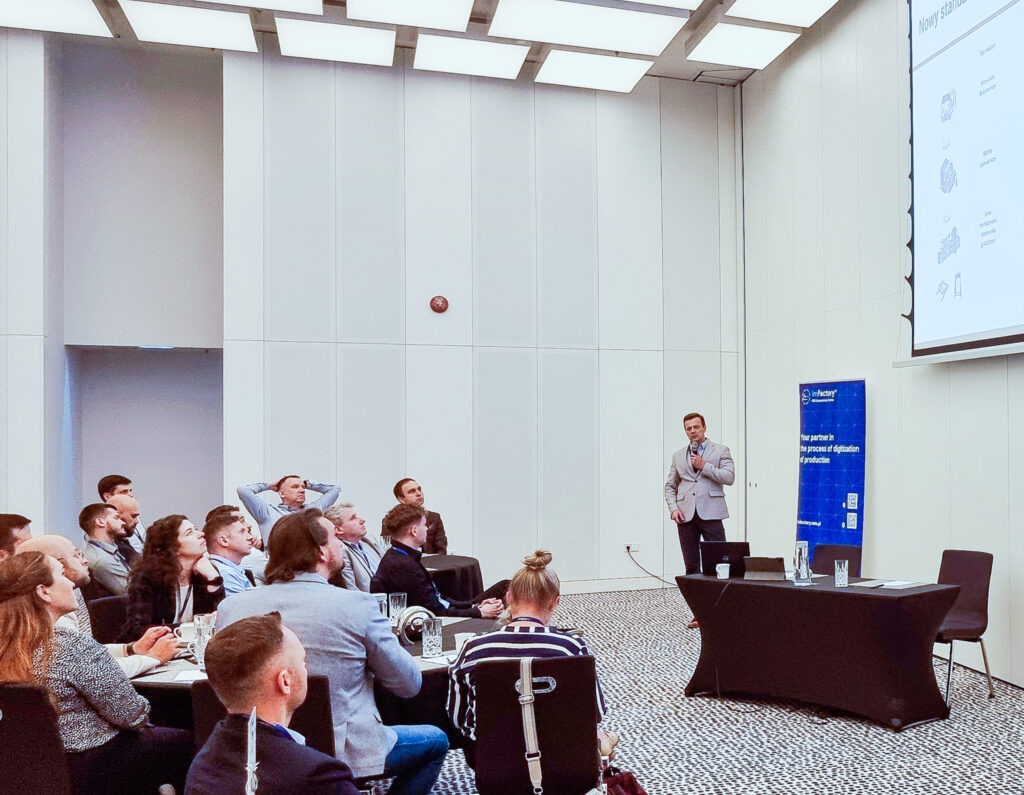
The conference was also an excellent opportunity to supplement knowledge about manufacturing support systems, efficient utilization of their functionalities, and opportunities arising from digitalization.
“We chose to partner with ImFactory and ASTOR to continue developing our enterprise while maintaining close cooperation between machines and IT systems. Client demands are constantly growing, so we, as a manufacturer, can’t just deliver parts like we did 10 or 15 years ago. We also have to ensure complete product traceability, which can be achieved with the tools offered by AVEVA. Moreover, we utilize the MES system for fast collection and compilation of manufacturing data directly from machines. Over recent years, we have succeeded in developing the MES standard and specific organizational culture, enabling us to launch new projects and manufacture new car seat models. We are currently working on developing the system. Together with the integration company, we collaborate with various European suppliers so that new equipment is managed by MES and both internal and external clients feel that their needs are being met,” observed Wojciech Suchański, a conference participant.
“Exchange of experiences and discovering functionalities of systems. The event format and organization on the highest level. No complaints,” said Arkadiusz Włoch, a conference participant.
“Sharing experiences with other participants. Information about how MES systems are utilized in other companies. Wide variety of presenting companies,” noted Piotr Latos, a conference participant.
The positive reception of the conference and the active involvement of participants clearly indicate that openness in sharing knowledge, experiences, and inspirations provides invaluable support to manufacturing companies on their path to digital transformation.
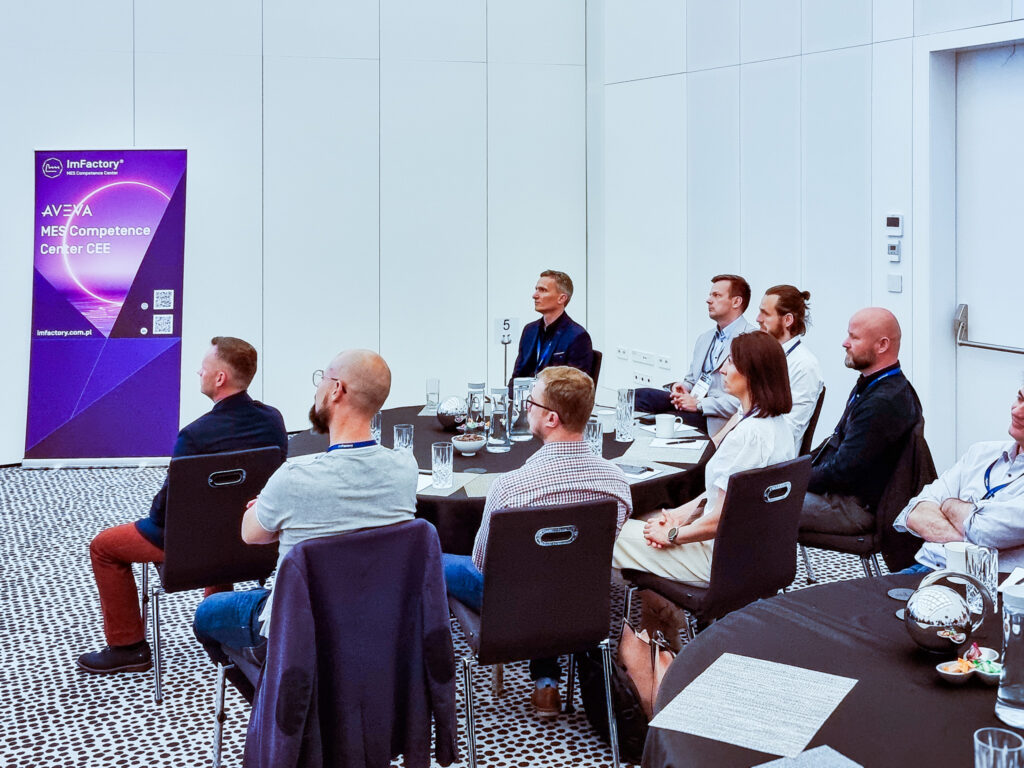
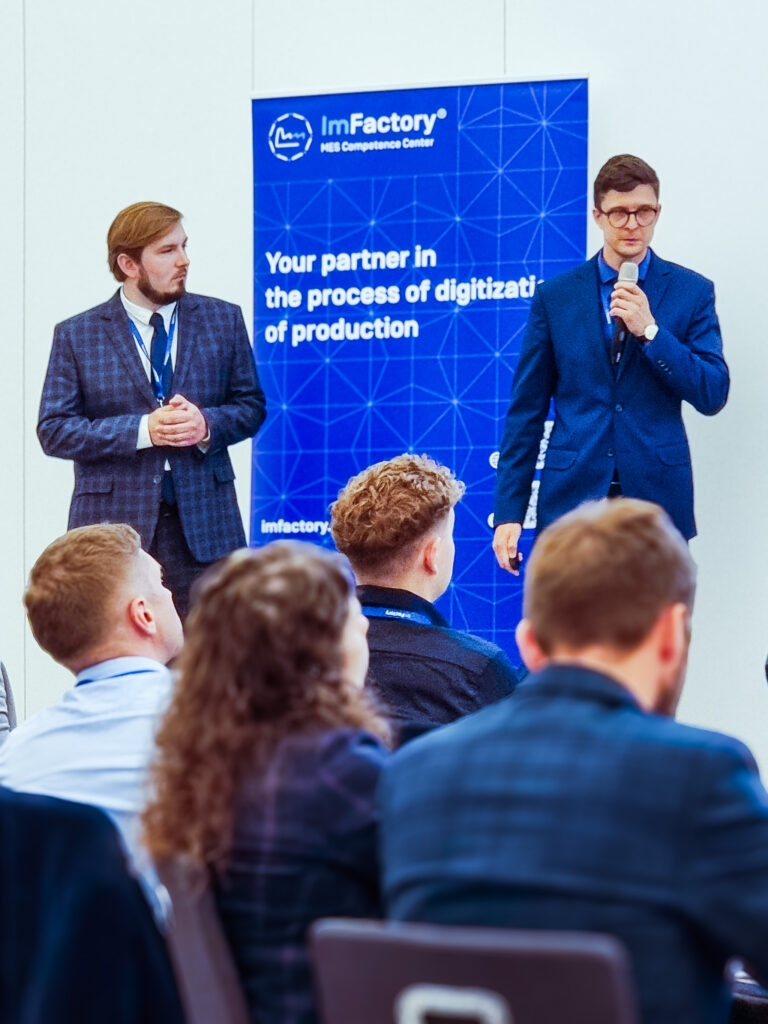
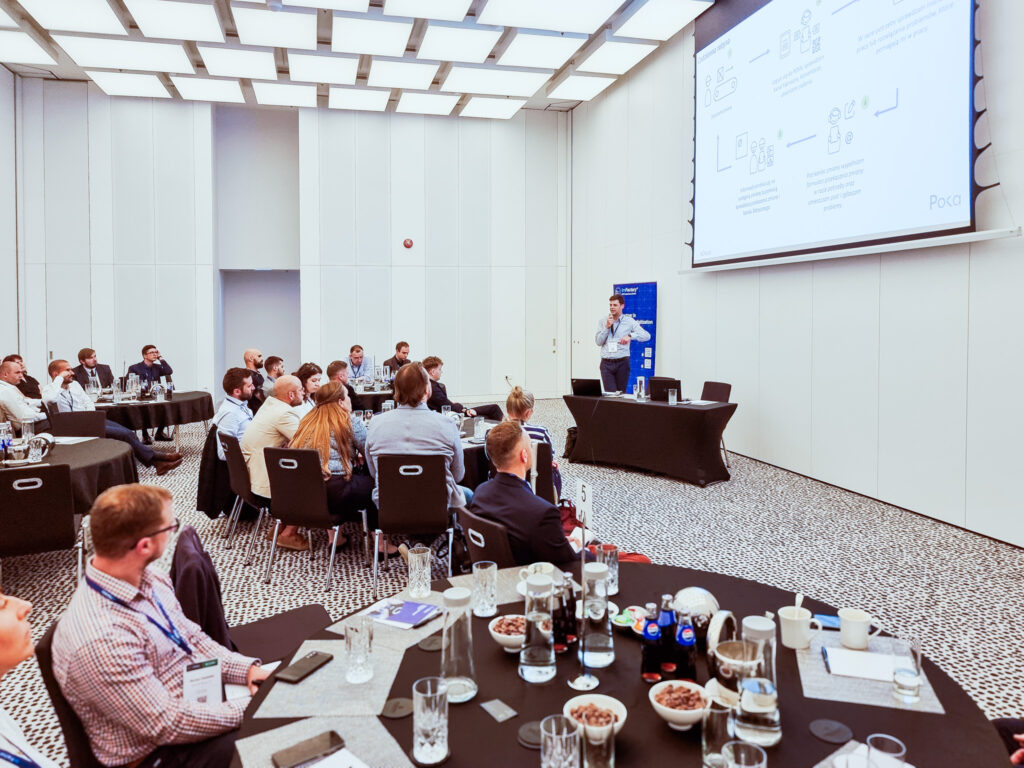
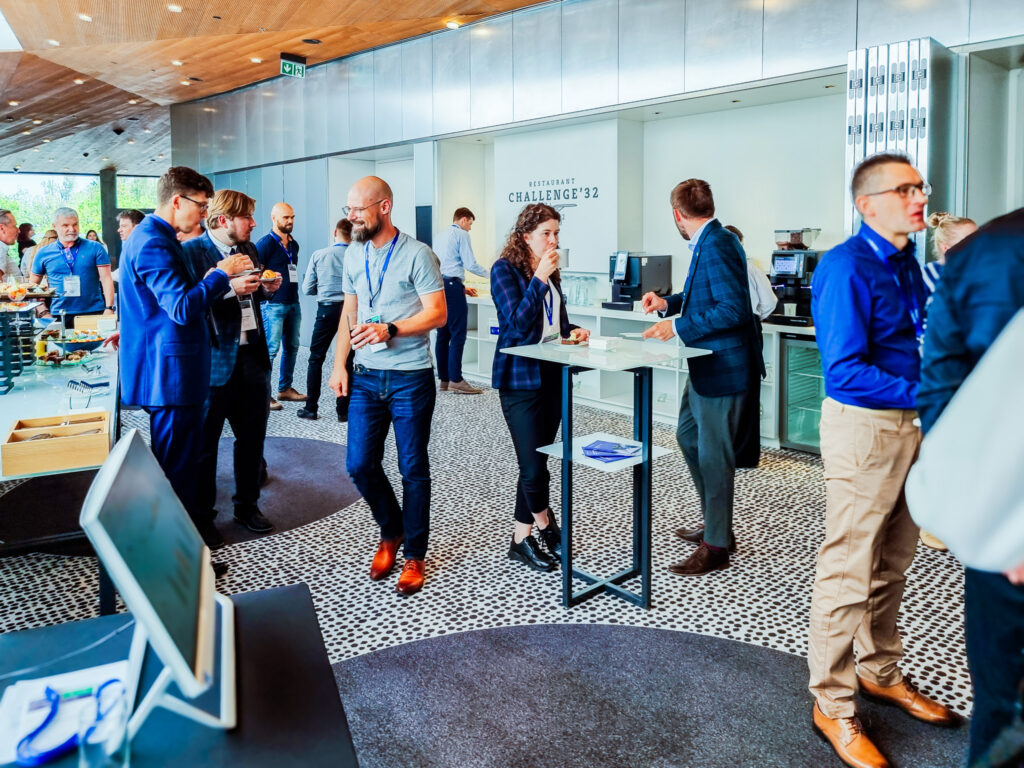
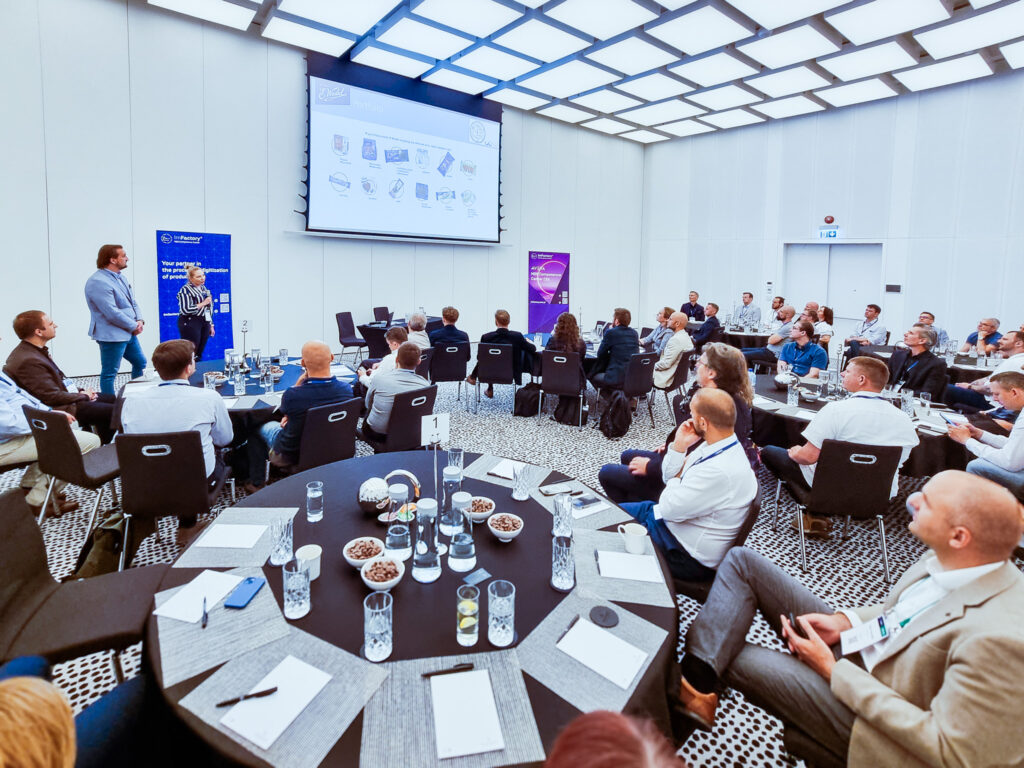
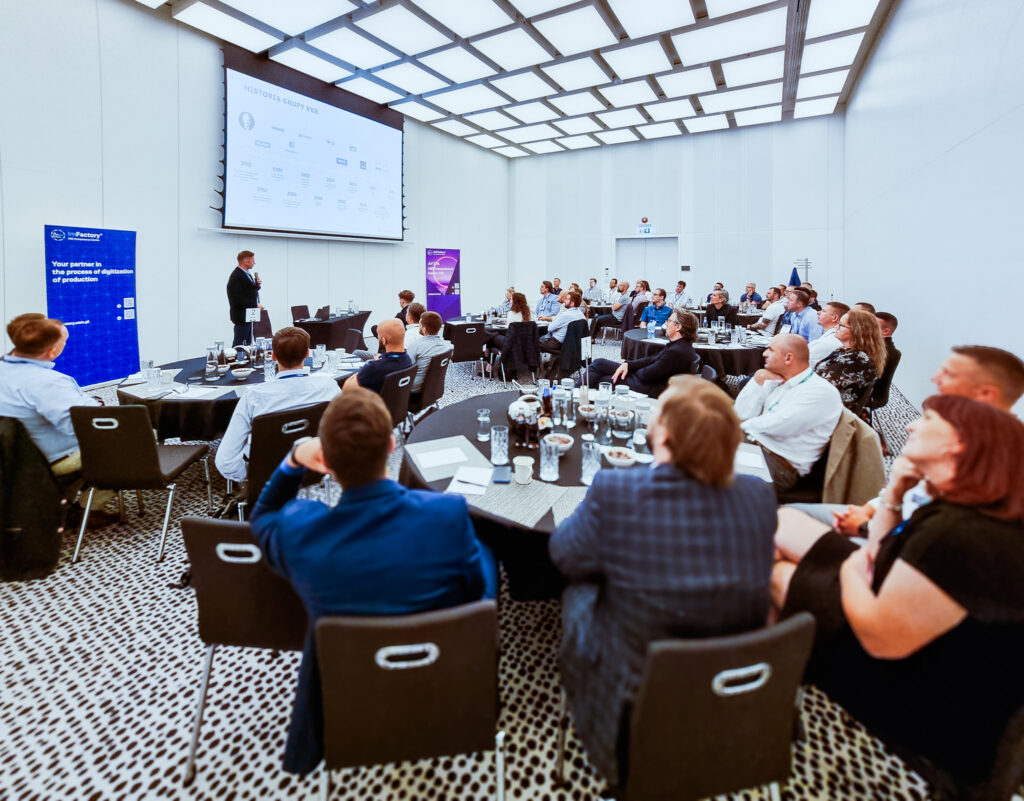
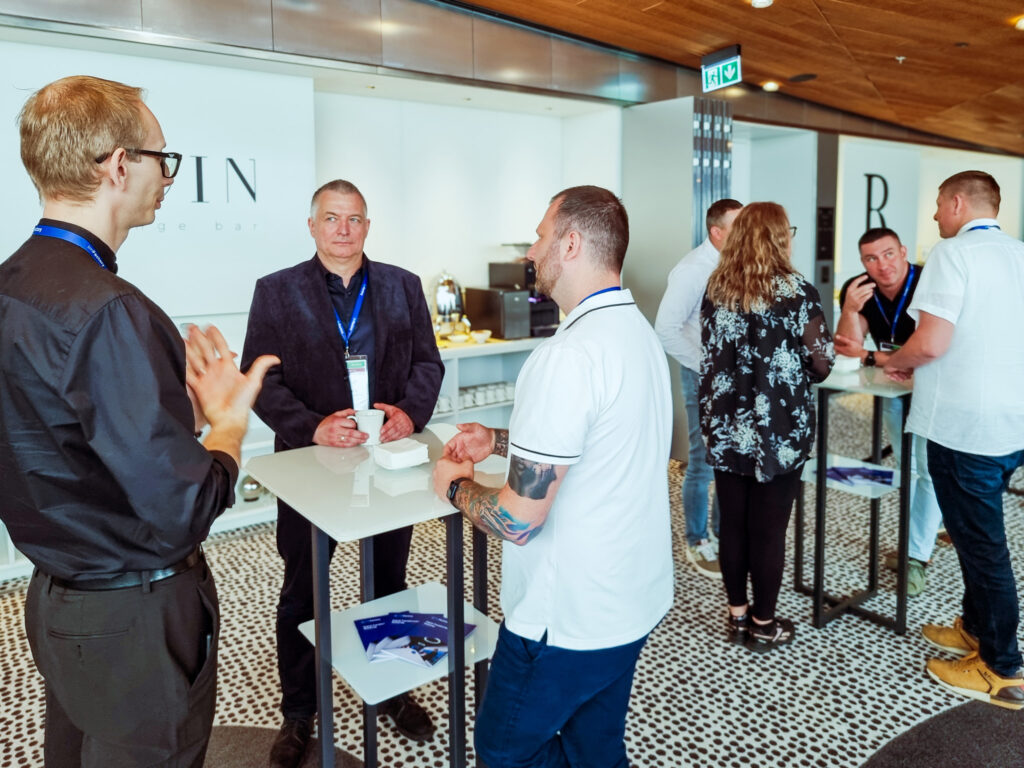
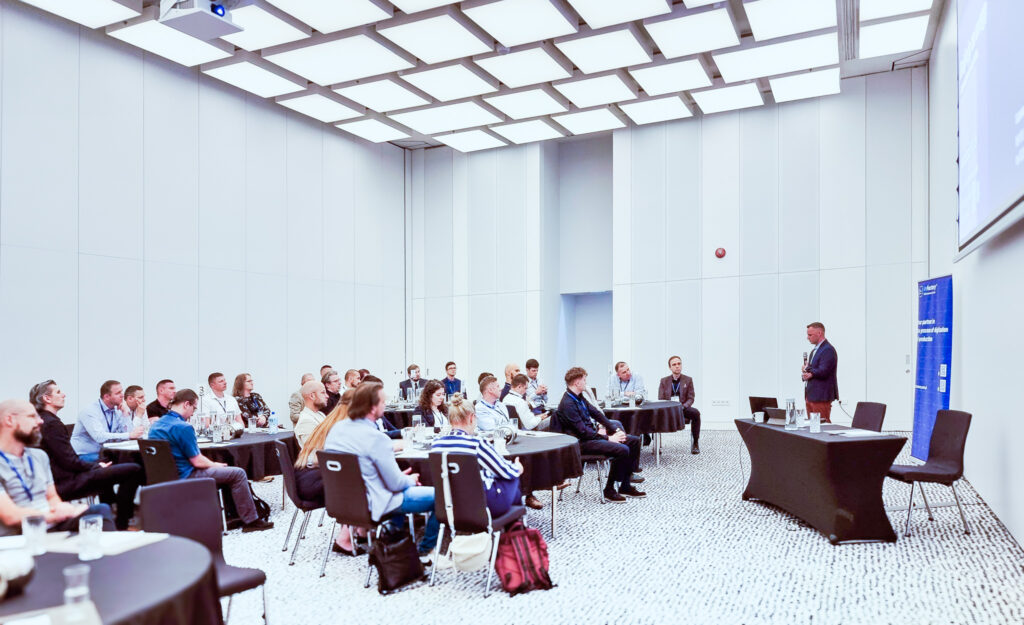
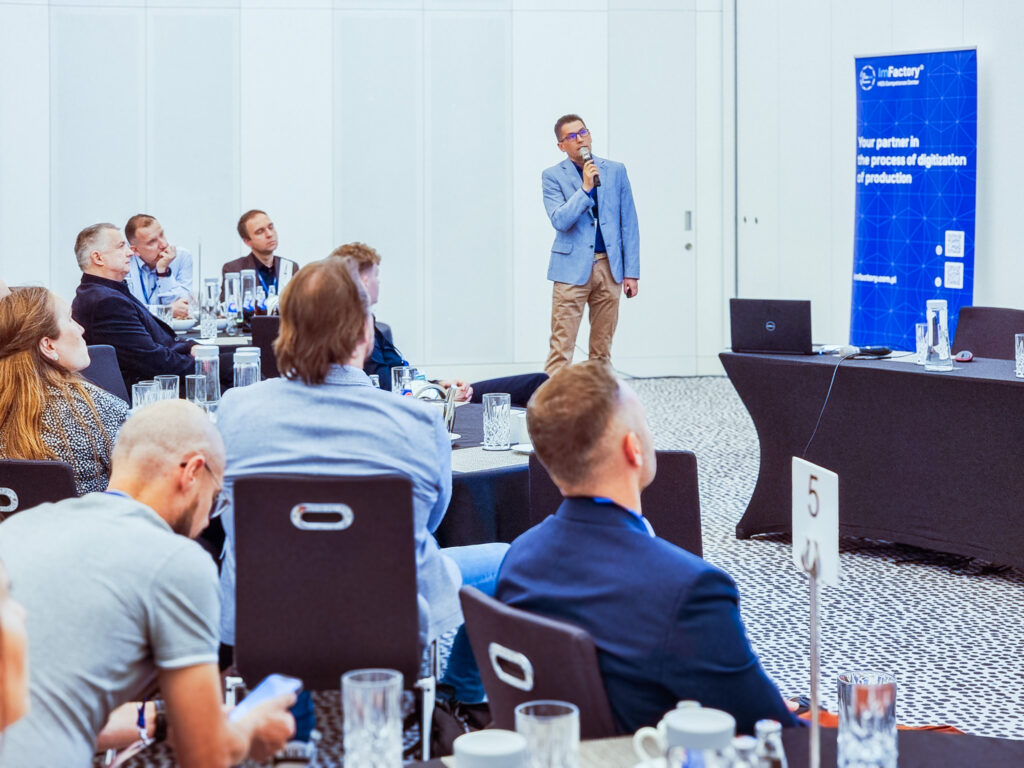
About ImFactory
Improvement Factory (abbreviated as ImFactory) is a subsidiary of the ASTOR Group, established on the foundation of an internal competence center specializing in Manufacturing Execution Systems (MES). Since 2021, ImFactory has served as the AVEVA MES Competence Center in Central and Eastern Europe. Its main objective is to support manufacturing companies on their path to Industry 4.0 by supplying specialized systems for manufacturing process improvement, such as Manufacturing Execution System (MES), Advance Planning and Scheduling (APS), and Enterprise Service Bus (ESB) for IT system integration. The company also offers a portfolio of proprietary solutions, consulting support, and assistance in developing a Roadmap, which constitutes the first step in Digital Transformation.
About ASTOR
ASTOR is a technology brand with Polish capital that has been consistently developed for 35 years. It is a leading Value Added Distributor (VAD) in the scope of four strategic business lines: automation, robotics, industrial software, and intralogistics, with highly developed consulting activities (ASTOR Consulting) and educational work (ASTOR Academy and industry periodicals). ASTOR has offices in seven Polish cities: Kraków, Katowice, Wrocław, Poznań, Szczecin, Gdańsk, and Warsaw, with competence centers operating in Poland and the CEE region: 1. Robotic Welding Competence Center; 2. ImFactory AVEVA MES Competence Center; 3. Mission Critical by ASTOR; 4. Dynamotion.
See also
Want to learn more? Visit our Knowledge Base, where you'll find articles and webinars by experts to expand your knowledge.
Check if Digital Transformation is the Answer to Your Company's Needs


























